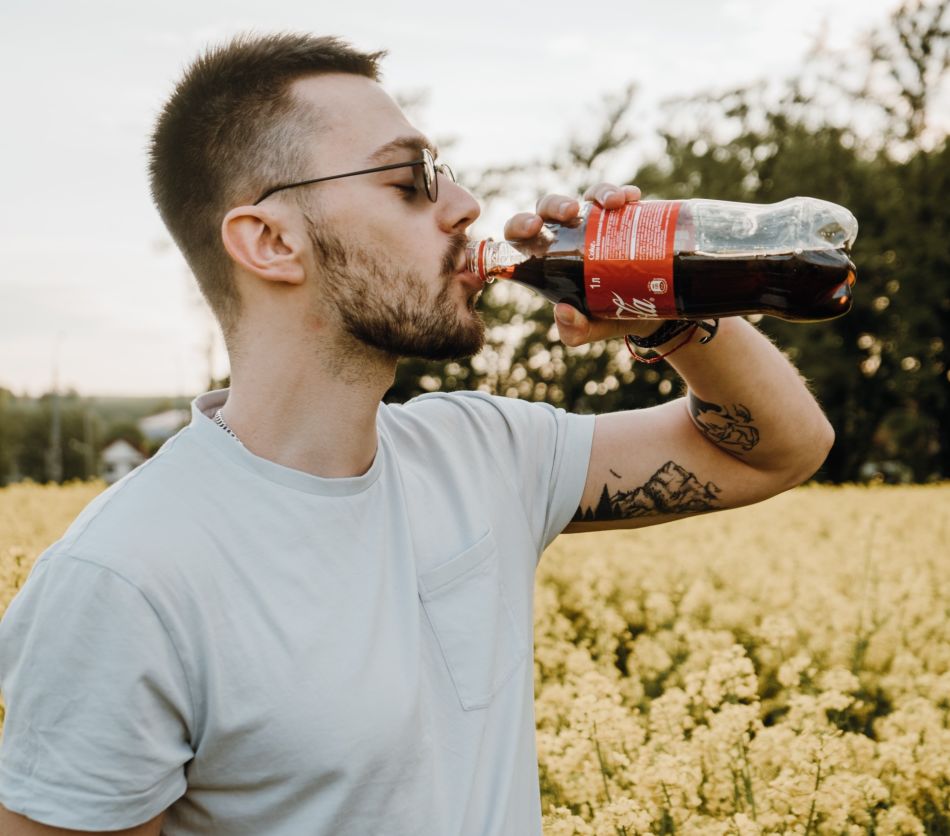The Science of Shamelessness: Corporations, Scientists, and Spinning the Facts
Greggory Moore | Moore Lowdown

image by: Kate Andreeshcheva
Coca-Cola wants you to believe that, contrary to conventional wisdom, empty-calorie beverages like Coke don't contribute to obesity. And they're willing to pay scientists to peddle their message.
There are no two ways about it: cigarette smoking causes cancer. By the 1950s there was already a significant body of evidence establishing the link. But cigarette companies orchestrated a massive cover-up by funding so-called research to contradict the truth, a scheme that probably contributed to millions of deaths.
Despite this well-known cautionary tale, corporations continue to engage in such schemes, knowing there is no shortage of so-called scientists willing to sing any tune if the price is right.
A current example is the Coca-Cola Corporation, which is in the midst of a campaign to distract from the contribution its empty-calorie concoctions make to society-wide obesity by funding scientists to spread the word that avoiding obesity has little to do with the calories we consume, so long as we're physically active.
That's the message coming out of the Global Energy Balance Network (GEBN), a new nonprofit that The New York Times reports was founded on the basis of a $1.5 million Coca-Cola grant.
“Most of the focus in the popular media and in the scientific press is, ‘Oh they’re eating too much, eating too much, eating too much’—blaming fast food, blaming sugary drinks, and so on,” says GEBN Vice-President Steven N. Blair in a video announcing the organization's mission. “And there’s really virtually no compelling evidence that that, in fact, is the cause. […] Those of us interested in science, public health, medicine, we have to learn how to get the right information out there."
Blair's implications here are bizarre. Does he really believe, for example, that the scientific press isn't composed mostly of people interested in science who want to get the right information out there? And does he really think the findings of the scientific community can be dismissed as easily as those of "the popular media" if they don't comport with the message the GEBN is sending?
The very idea of framing obesity as a question of a "lack of physical activity as a cause versus overconsumption of unhealthy food and beverages" is what the New England Journal of Medicine labels a "false and unhelpful dichotom[y]." Clearly, both can be contributing factors. The bottom line for obesity is that if you consume more calories than you burn, the excess caloric intake is stored as fat.
But in terms of nutrition, not all calories are created equally. Compare a 16-ounce Coke and one ounce of almonds, servings that have approximately the same caloric value (160). Eat the almonds and you obtain dietary fiber, riboflavin, magnesium, manganese, calcium, iron, and Vitamin E, substances that contribute to healthy bones, blood, nerve and organ function, etc. Drink the Coke instead and not only do you obtain literally no nutrition, but virtually the entire caloric load comes in the form of processed sugar, which is universally regarded as unhealthy and widely regarded as toxic, and which in even such a small daily amount correlates with an increased risk of type 2 diabetes.
Of course, these facts don't serve Coca-Cola's interests. The more people eschew empty calories for nutritional ones, the less Coke is consumed and the less money Coca-Cola makes. So you won't hear the Global Energy Balance Network talking about nutrition, never mind more nuanced considerations such as the fact that the healthier one eats, the healthier—and therefore more able to exercise—one is.
"[W]e want data," Blair says in the above-mentioned video. "We want actual data on energy balance." What he means, of course, is that he wants data that comports with the GEBN's preconceived message, not the sort of data that led scientists in the International Journal of Epidemiology to conclude, "Physical activity is crucially important for improving overall health and fitness levels, but there is limited evidence to suggest that it can blunt the surge in obesity."
The point here is not to get into a "he said/she said" on the subject, but to consider why he said what he did. And a little Latin goes a long way here: Cui bono? Who benefits?
Clearly, Coca-Cola benefits from the notion that the consumption of empty calories do not directly contribute to obesity, that exercise will save you from such an unhealthy fate no matter what you eat or drink.
One of the basic tenets of doing good science is not to have a vested interest in the results. Otherwise, you might skew your experiment or reading of the data to so that things go your way. Unfortunately, some so-called scientists—and many corporations—don't care. So before considering supposedly scientific claims, you might want to follow the money.
About the Author:
Except for a four-month sojourn in Comoros (a small island nation near the northwest of Madagascar), Greggory Moore has lived his entire life in Southern California. Currently he resides in Long Beach, CA, where he engages in a variety of activities, including playing in the band MOVE, performing as a member of RIOTstage, and, of course, writing.
His work has appeared in the Los Angeles Times, OC Weekly, Daily Kos, the Long Beach Post, Random Lengths News, The District Weekly, GreaterLongBeach.com, and a variety of academic and literary journals. HIs first novel, The Use of Regret, was published in 2011, and he is currently at work on his follow-up. For more information: greggorymoore.com

Introducing Stitches!
Your Path to Meaningful Connections in the World of Health and Medicine
Connect, Collaborate, and Engage!
Coming Soon - Stitches, the innovative chat app from the creators of HWN. Join meaningful conversations on health and medical topics. Share text, images, and videos seamlessly. Connect directly within HWN's topic pages and articles.
















